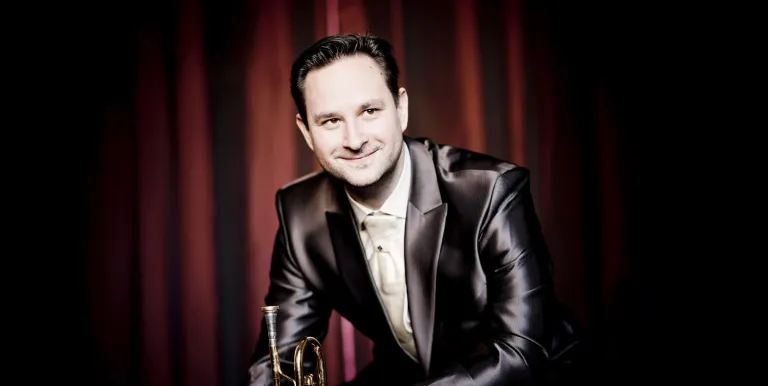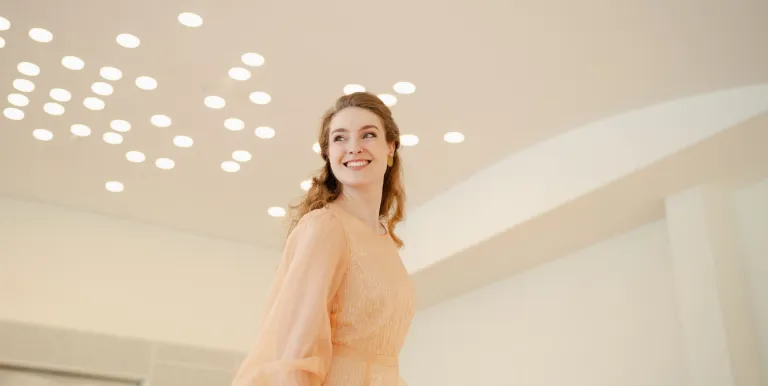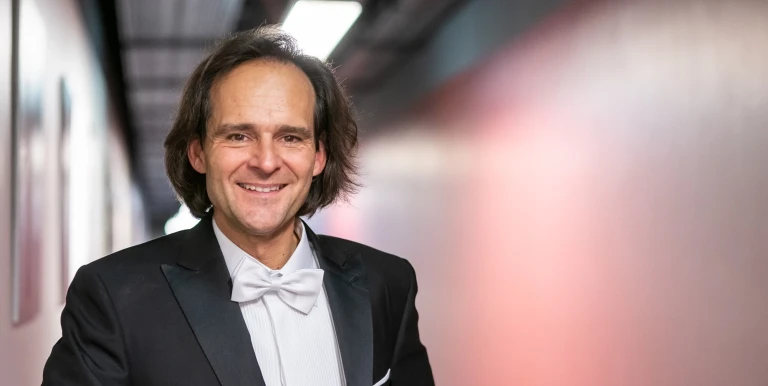J. S. Bach
‘Wir danken dir, Gott, wir danken dir’ (Council Election Cantata), BWV 29 – first movement: Sinfonia
J. S. Bach
‘Herz und Mund und Tat und Leben’ (cantata), BWV 147 – tenth movement: ‘Jesus bleibet meine Freude’
J. S. Bach
Fugue in D minor, BWV 539
Daquin
Noël étranger
Mozart
Church Sonata No. 17 in C major, K. 336 (arranged by Zsigmond Szathmáry)
Beethoven
Scherzo In G Major for Mechanical Clock, WoO 33, No. 2
Balbastre
Canonnade
Florentz
Laudes - Kidân za-nageh, Op. 5 – third movement: Harpe de Marie
Bartók
Romanian Folk Dances, Sz. 56, BB 68 – third movement: Pe loc (‘In One Spot’)
Messiaen
L’Ascension – third movement: Transports de joie
Franck
Cantabile
Vierne
Organ Symphony No. 1 in D minor, Op. 14 – fourth (Allegro vivace) and fifth (Final) movements
Müpa Budapest’s new Gallery Concert series opens a new chapter in the history of the institution’s music performances. “Until now, the audience has only ever seen the 42-tonne acoustic panel – the canopy – suspended from the ceiling of the National Concert Hall high up above their heads,” says László Fassang, the mastermind behind the new series and the first soloist to be featured in it. “Now, however, it will be lowered, allowing everyone to encounter both the organ and the hall in a completely new acoustic and visual environment.”
At the Gallery Concerts, the audience sits on the same level as the organ, on the upstairs galleries. “Put together a 50-minute programme of the works that you would put in the backpack of a friend who is moving to a desert island,” is how the organist outlines the musical concept for the series. The aim of the Gallery Concerts is therefore, on the one hand, to foster a sense of intimacy and immediacy, and on the other hand, to showcase a selection of works that can be our companions for life. The lowered canopy “makes the acoustic experience much more intense and direct. It will be like getting to know a totally different organ and another concert hall,” Fassang says. While later concerts in the series will feature distinguished members of the younger generation of Hungarian organists, the inaugural performance will be Fassang’s, whose colourful and varied program embraces many styles, genres and atmospheres spanning three centuries, from Bach to Florentz. Another common denominator of the works is their joyfulness, expressing the state of happiness in many of its different shades. Among the most versatile of his generation of organists, Fassang is the recipient of numerous Hungarian and international awards. He was one of the experts involved in the construction of Müpa Budapest’s organ. He currently serves as the resident organist here, in addition to teaching at the Conservatoire de Paris.
Presented by: Müpa Budapest
-
We wish to inform you that in the event that Müpa Budapest's underground garage and outdoor car park are operating at full capacity, it is advisable to plan for increased waiting times when you arrive. In order to avoid this, we recommend that you depart for our events in time, so that you you can find the ideal parking spot quickly and smoothly and arrive for our performance in comfort. The Müpa Budapest underground garage gates will be operated by an automatic number plate recognition system. Parking is free of charge for visitors with tickets to any of our paid performances on that given day. The detailed parking policy of Müpa Budapest is available here.












